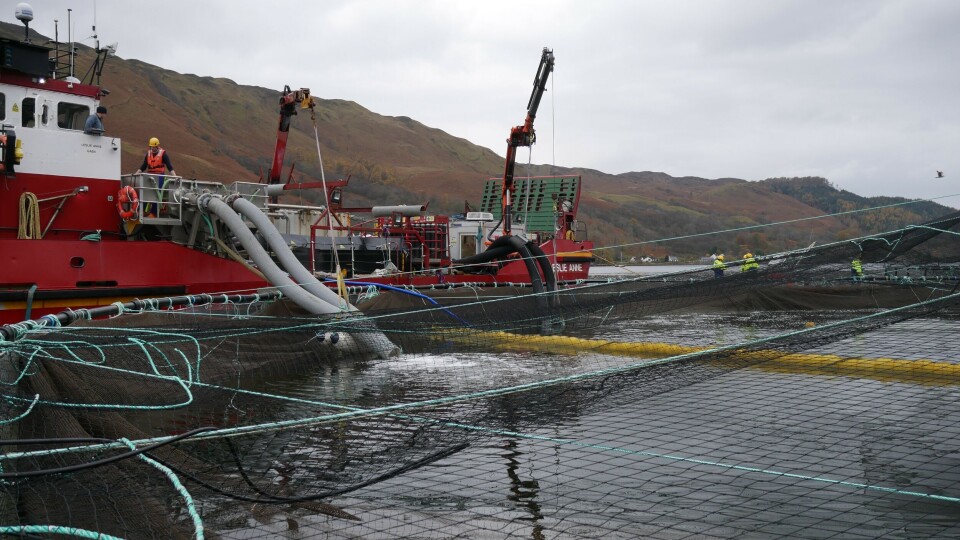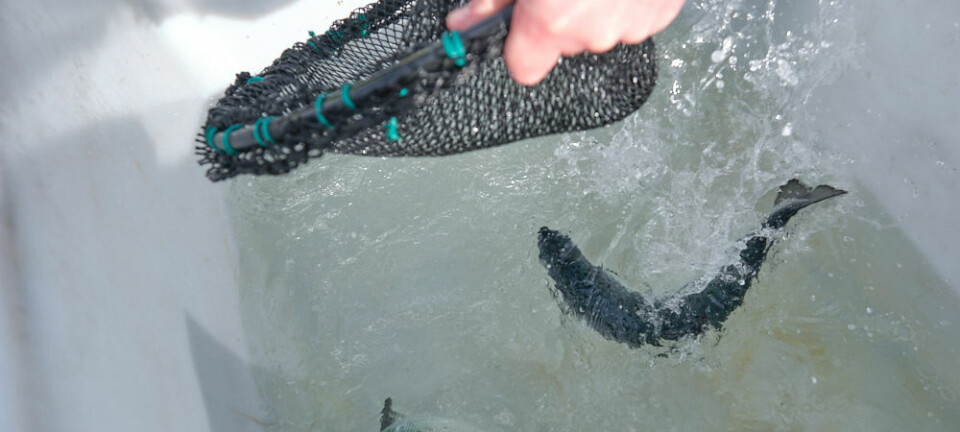
'Don’t dive into fish farming without looking'
A new report for investors warns that growth in the $232 billion global fish farming sector could be undermined by a failure to manage environmental, social and governance (ESG) risks.
These include climate change, a dependence on wild fish stocks for feed, excessive use of antibiotics and poor governance. The report also highlights the rising investment opportunities in areas such as fish health innovations and alternative feeds.
The report, ‘Shallow returns?’, is produced by FAIRR, a network backed by investors managing over $12 trillion of assets, including Aviva Investors, CANDRIAM, DNB Asset Management and Norwegian pension group KLP.

High-density farming
The report highlights average annual growth in the aquaculture sector of almost 6%, but warns that much of the growth is based on more intensive, high-density farming associated with ESG risks including climate change (rising sea temperatures and acidification), algal blooms, antibiotic use, fish feed supply and a lack of transparency in the sector.
Other risks highlighted by the report include the level of effluents and waste flowing from aquaculture production systems to the wider environment; fish escaping fish farms and mixing with native marine populations; and the intensifying battle against fish diseases such as sea lice. According to the World Bank diseases alone cost the sector $6 billion per annum.
The report also highlights emerging management practices and innovations in the sector to help meet these ESG challenges. These include:
- the use of probiotics to reduce antibiotic use;
- the use of alternatives to fishmeal including feed made from bacteria, algae and insects; and
- innovative start-ups emulating fish products using only plant-based ingredients
Significant challenges
Maria Lettini, Director of FAIRR, said: “Investors should be aware of the sustainability risks in the aquaculture sector before they wade in too deeply. From effluents to emissions, this sector must address significant environmental and public health challenges if it is to prosper over the long-term. There are clear steps which must be taken to manage these risks. For example, aquaculture operations should be certified against global standards that meet FAO guidelines.
“The market should also consider greater cultivation of species that remove marine pollution rather than contribute to it - such as mussels and oysters. In addition, farming these species brings minimal animal welfare concerns and does not require fishmeal-based feed."
Janicke Scheele, head of rsponsible investments at DNB Asset Management said: “This report demonstrates the many sustainability issues facing the fast-growing global aquaculture industry.
“As long-term investors we want to ensure that the industry grows in a sustainable way.”
He added: “The salmon industry can, for example, find more sustainable sources of feed and continue the process of minimising its impacts on marine ecosystems. These are not only important sustainability factors - they relate to key financial considerations too.”























































